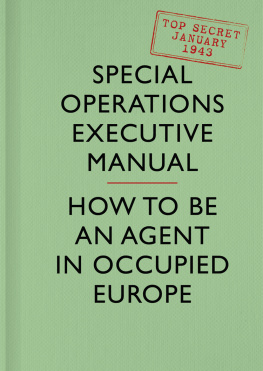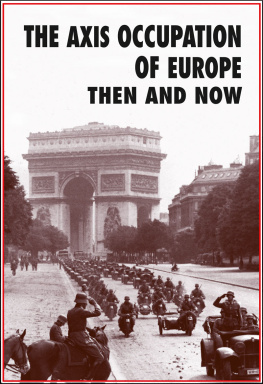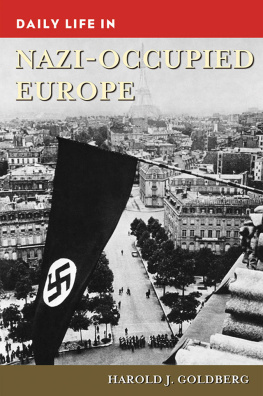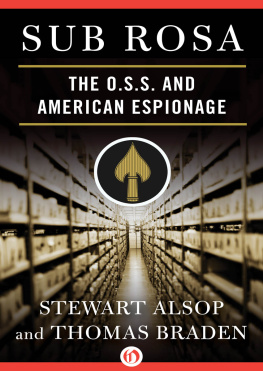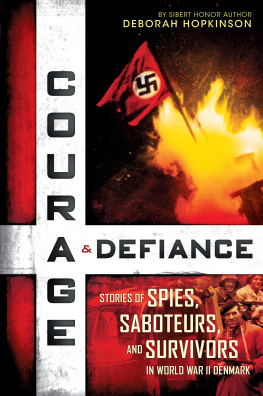
SECRET WAR
Rigas Rigopoulos
GREECE MIDDLE EAST, 1940-1945
THE EVENTS SURROUNDING THE STORY OF SERVICE 5-16-5

SECRET WAR
Rigas Rigopoulos
Award of the Academy of Athens
as an amalgam of history and literature
Original Greek text published in Athens, 1973
English edition by Jesse M. Heines
in collaboration with Rigas Rigopoulos and Dionysis Rigopoulos from a draft translation by Eleni Dedoglou
Greek Edition Copyright 1973, 2003 by Rigas Rigopoulos.
English Edition Copyright 2003 by Jesse M. Heines. All rights reserved.
Publishing Rights: Turner Publishing Company
The cover is a woodcut offered for this book by Greek painter Spiros Vasiliou.
It was created during the German Occupation for a handwritten book (in 100 copies with woodcuts) to accompany poems for liberty and resistance by Angelos Sikelianos.
TURNER PUBLISHING COMPANY
Publishers of Americas History
www.turnerpublishing.com
Editor: Randy Baumgardner
Designer: Peter Zuniga
This book or any part thereof may not be reproduced without the express written consent of the publisher and/or author.
Library of Congress Catalog No.
2003104153
ISBN: 978-1-56311-886-9
LIMITED EDITION
TABLE OF CONTENTS
To |
A K | Alexander Kairis |
N | Nicos Paliatseas |
Petros Drakopoulos |
N M | Nicos Menegatos |
T | Stamatis Tratras |
T | Socratis Tselentis |
who gave their lives for all of us,
I dedicate this book with gratitude.
R.R.
FOREWORD
The Second World War dauntingly continues to fascinate and intrigue both historians and the general public alike. Indeed, the end of the global conflict in 1945 also served as a catalyst for inspiring hundreds and thousands of books, memoirs, biographies, and, of course, film and television. Perhaps, movies and television programs, more than any other medium, have served to keep the war alive by providing a visual reminder of the horrors as well as the extraordinary achievements of the men and women who struggled to overcome totalitarian rule. This is particularly true of those individuals who fought in the shadowy world of espionage. They risked torture and the threat of death for the Allies to win the intelligence war against the Axis powers.
Espionage has been aptly labeled as the second oldest profession. During the Second World War, the role of secret intelligence was critical in the defeat of Nazi Germany and Imperial Japan. The ability of the British to break and read Germanys codes enabled the Allies to win several decisive battles. The victory of the war in the Atlantic and even the success of D-Day on June 6, 1944, owed a great deal to the code breakers toiling at Bletchley Park.
However, the most dramatic use of secret intelligence in the Western Theater resulted from covert operations against the Nazis in the cities of occupied Europe, which were implemented, to a great extent, by young men and women. For the most part, their stories remained shrouded in secrecy. Only in the late 1970s, with the opening of British and American archives, did the exploits of these remarkable people see the light of day. Until then, a plethora of books and articles testified to the gallantry and significant contributions of the resistance forces in occupied Europe, but little was written about the clandestine war in the urban centers. Readers were carried away reading the brave feats of the partisans in the mountains, deserts, and jungles, while the strategic role of the spies and saboteurs in the cities remained almost anonymous.
There are several factors that contributed to the slender bibliography of the intelligence war in the post-war period. Espionage, dealing with wartime intelligence, remained a subject for mystery novels and fiction rather than for serious works of history. The few studies that emerged following the end of the Second World War were confined to carefully vetted memoirs and official accounts of major intelligence operations. Memoirs by actual participants of the intelligence war were further limited by the official secrets acts of Great Britain and the United States and by the fact that most of these covert warriors were either killed during the course of the occupation or continued as professional intelligence officers after 1945. Furthermore, with the exception of British, American, German, and, to a lesser degree, French archives, most of the countries that participated in the Second World War refused to allow access to their archives. Consequently, most English language studies of the occupation period in Europe focus on Anglo-British operations against the Axis. Under these circumstances, the limited publications that do concentrate on the history of espionage and other covert operations in occupied Europe are still viewed through a British or American prism.
In the case of Greece, accounts of the occupation period (1941-44) concentrate on the history of the guerrilla fighters in the mountains and the British liaison officers who tried, in vain, to coordinate the Greek partisan bands. As was the situation in Europe and North America, the story of the guerrilla war eclipsed the equally significant and harrowing history of the spies and saboteurs. For many decades after the Second World War, the publication of memoirs and autobiographies of Greek and British participants with the resistance dominated the history of the Axis occupation of Greece. Many historians as well as other specialists were intrigued by the creation of mass resistance movements such as EAM (the National Liberation Front) and its military wing ELAS (National Liberation Army). The fascination was fueled by the crisis between the left and right forces that dominated the development of the resistance in occupied Greece and obscured the covert war waged in the cities and towns.
The history of intelligence operations, sabotage, and espionage in occupied Greece is inextricably tied to the story of Britains wartime Special Operations Executive (SOE), which was set up to implement guerrilla warfare, subversion, and sabotage in occupied Europe and Asia. The SOE was created during the dark days of July 1940 after the fall of France, when Britain stood alone against what appeared to be the irresistible onslaught of Nazi Germany. Winston Churchill issued the new organization a simple directive Set Europe Ablaze which aimed at sparking and sustaining mass resistance against the German occupation forces.
This mandate entailed organizing guerrilla groups and preparing sabotage and intelligence networks regardless of political affiliations and post-war agendas. Indeed, during the first phase of the Second World War (1939-1942), little thought was given to the political fallout from such activity in countries such as Greece. Greek resistance groups were dominated by left-wing and anti-monarchist leaders whose plans for the post-war period did not include the establishment of the prewar political status quo the restoration of the Greek king and his supporters. Ultimately, SOEs foray into guerrilla warfare in the Greek mountains ran against the left-wing and republican ideology of the Greek resistance, which led to the first round of civil war in 1943, to the December Uprising against the British in liberated Greece in 1944, and to a much longer and more destructive civil war during 1946-1949.
Next page


